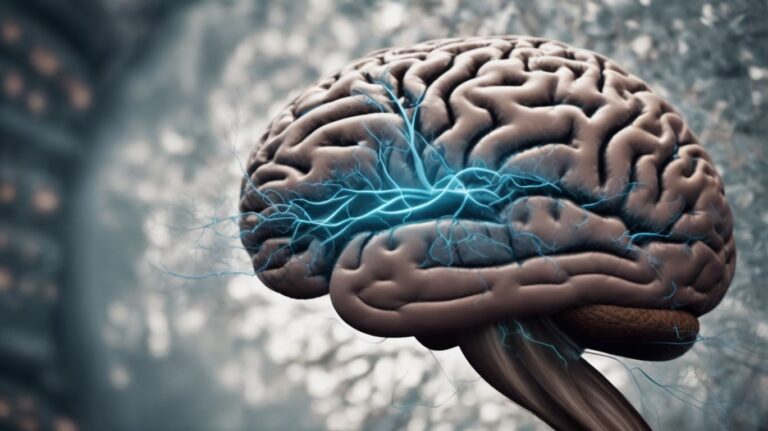Anorexia nervosa is a serious and potentially life-threatening eating disorder that affects millions of people around the world. In this article, we will explore the causes, signs, and symptoms of anorexia nervosa, as well as how it is diagnosed and treated.
We will also discuss the potential complications of this condition and offer insights into how it can be prevented. Whether you are seeking information for yourself or a loved one, this comprehensive guide will provide valuable insights into understanding and addressing anorexia nervosa.
Contents
- 1 Key Takeaways:
- 2 What Is Anorexia Nervosa?
- 3 What Are The Causes Of Anorexia Nervosa?
- 4 What Are The Signs And Symptoms Of Anorexia Nervosa?
- 5 How Is Anorexia Nervosa Diagnosed?
- 6 What Are The Complications Of Anorexia Nervosa?
- 7 How Is Anorexia Nervosa Treated?
- 8 How Can Anorexia Nervosa Be Prevented?
- 9 Frequently Asked Questions
- 9.1 What is anorexia nervosa?
- 9.2 What are the signs and symptoms of anorexia nervosa?
- 9.3 Who is at risk for developing anorexia nervosa?
- 9.4 How can I tell if someone I know has anorexia nervosa?
- 9.5 Can anorexia nervosa be treated?
- 9.6 What should I do if I suspect I or someone I know has anorexia nervosa?
Key Takeaways:
What Is Anorexia Nervosa?
Anorexia nervosa, commonly known as anorexia, is a serious and potentially life-threatening eating disorder characterized by an intense fear of gaining weight and a distorted body image.
This disorder often leads to severe weight loss and malnutrition due to restrictive eating habits. Individuals with anorexia may engage in extreme dieting, excessive exercise, and relentless pursuit of thinness, despite being underweight.
The impact of anorexia on physical health can be profound, leading to weakness, fatigue, dizziness, and even organ damage. It significantly affects mental wellness, causing anxiety, depression, and social withdrawal.
It’s essential for individuals experiencing symptoms of anorexia to seek medical help promptly. Mental health professionals, including psychiatrists, psychologists, and therapists, play a crucial role in providing comprehensive treatment, including therapy, nutrition counseling, and medication, tailored to address the complex nature of anorexia nervosa.
What Are The Causes Of Anorexia Nervosa?
The causes of anorexia nervosa are multifaceted, encompassing psychological, genetic, and environmental factors that contribute to the development and progression of this eating disorder.
Anorexia nervosa can be influenced by a variety of psychological factors, such as low self-esteem, perfectionism, and body image issues. Additionally, individuals with a family history of eating disorders may be genetically predisposed to developing anorexia nervosa. Environmental factors, such as societal pressures, cultural norms, and traumatic life events, also contribute to the vulnerability of developing this disorder. It is important to understand these diverse causes in order to develop effective therapeutic approaches and continue research efforts in this field.
Psychological Factors
Psychological factors, such as distorted body image, low self-esteem, and perfectionism, play a significant role in the development and perpetuation of anorexia nervosa.
Individuals with anorexia nervosa often have a distorted perception of their body, seeing themselves as overweight even when they are dangerously underweight. This distorted body image can lead to severe food restriction and excessive exercise as they strive for an unattainable ‘perfect’ physique.
Low self-esteem can intensify these negative perceptions, contributing to a continuous cycle of self-criticism and destructive behaviors. Recognizing the complexities of these psychological factors is crucial in providing effective mental health support for those struggling with anorexia nervosa.
Genetic Factors
Genetic predispositions and familial tendencies have been identified as potential contributors to the development of anorexia nervosa, as evidenced by ongoing research and clinical trials in the field of mental health.
Individuals with a family history of eating disorders are at a higher risk of developing anorexia nervosa, indicating a strong familial tendency.
Additionally, genetic studies have revealed specific variations in genes related to appetite regulation, metabolism, and mood that may predispose individuals to develop this condition.
Ongoing research continues to investigate the complex interplay between genetics and environmental factors in the development of anorexia nervosa, shedding light on potential pathways for targeted prevention and treatment strategies.
Clinical trials are also exploring genetic markers and their role in predicting an individual’s response to different types of interventions, paving the way for personalized and effective treatment approaches.
Environmental Factors
Environmental influences, including societal pressures, cultural norms, and adverse life experiences, contribute to the onset of anorexia nervosa, emphasizing the need for proactive prevention and supportive interventions.
Individuals with anorexia nervosa often experience significant pressure to conform to idealized body images perpetuated by societal standards and media representations. Cultural norms related to beauty, thinness, and dieting can exacerbate these pressures, leading to unhealthy behaviors and distorted self-perception.
Adverse life experiences, such as trauma or abuse, can also play a role in the development of anorexia nervosa. Prevention strategies focused on promoting positive body image, self-esteem, and healthy relationships with food are essential in mitigating the impact of these environmental influences. Education and awareness campaigns aimed at challenging unrealistic beauty standards and fostering acceptance of diverse body shapes can help create a more inclusive and supportive environment for individuals vulnerable to anorexia nervosa.
What Are The Signs And Symptoms Of Anorexia Nervosa?
Recognizing the signs and symptoms of anorexia nervosa is crucial for early intervention and medical help, as it manifests through various physical, behavioral, and emotional indicators.
Physically, individuals with anorexia nervosa may exhibit extreme weight loss, fatigue, and dizziness. Their hair might become thin and brittle, and their skin could appear pale or yellowish.
Behaviorally, they may engage in restrictive eating habits, excessive exercising, and obsession with calorie counting. Emotionally, they may display irritability, intense fear of gaining weight, and distorted body image. Understanding these diverse signs is essential for seeking medical help and support through relevant helplines.
Physical Symptoms
The physical symptoms of anorexia nervosa encompass weight loss, fatigue, and potential medical complications, underscoring the significance of timely diagnosis and medical intervention.
Weight loss is often notable, leading to a body weight that is significantly below the recommended range for age and height. This can contribute to weakness and fatigue due to insufficient nutrient intake.
Physiological complications may also emerge, such as disruptions to heart rhythm, bone strength, and gastrointestinal function. These complications require prompt medical attention.
Seeking diagnosis and professional help is essential in these cases. It facilitates early intervention and minimizes the risk of severe long-term consequences.
Behavioral Symptoms
Behavioral symptoms of anorexia nervosa include restrictive eating patterns, obsessive calorie counting, and social withdrawal, highlighting the need for mental health support and crisis intervention.
Individuals struggling with anorexia nervosa often engage in extreme dieting, constantly restricting their food intake in an effort to achieve a perceived ideal body image. The obsessive calorie counting becomes a fixation, driving them to meticulously monitor and limit their food consumption, often leading to severe malnutrition and medical complications.
The social withdrawal seen in individuals with anorexia nervosa is a manifestation of their deep-seated emotional distress and struggle with self-esteem. They may isolate themselves from social activities and relationships, intensifying their psychological suffering.
It is crucial to recognize these behavioral symptoms and provide comprehensive mental health support and crisis intervention to address the complex challenges faced by individuals with anorexia nervosa.
Emotional Symptoms
Emotional symptoms of anorexia nervosa encompass anxiety, depression, and distorted body image, emphasizing the role of therapy and specialized support, including resources for vulnerable populations.
Individuals with anorexia nervosa often experience intense anxiety and may develop obsessive thoughts regarding food, weight, and body shape.
The constant preoccupation with food and weight can lead to a persistent state of anxiety, impacting their overall well-being. The feelings of depression and hopelessness are prevalent, further complicating their ability to seek help or acknowledge the severity of their condition.
Therefore, access to therapy and specialized support is crucial in addressing these emotional symptoms and promoting the recovery process.
How Is Anorexia Nervosa Diagnosed?
Diagnosing anorexia nervosa entails a comprehensive evaluation of physical and psychological symptoms, often involving healthcare providers, nutrition specialists, and mental health professionals.
The assessment process typically begins with a thorough examination of the individual’s medical history, followed by a physical examination to identify any signs of malnutrition or related health complications.
Mental health professionals conduct psychological evaluations to assess the individual’s thoughts, feelings, and behaviors related to food, body image, and weight. This multidisciplinary approach allows for a holistic understanding of the individual’s condition, enabling the development of a personalized treatment plan that addresses both the physical and psychological aspects of anorexia nervosa.
What Are The Complications Of Anorexia Nervosa?
Anorexia nervosa can lead to severe medical complications, including cardiovascular issues, electrolyte imbalances, and bone density loss, necessitating prompt medical help and targeted treatment interventions.
Cardiovascular risks associated with anorexia nervosa can include arrhythmias, low blood pressure, and decreased heart rate, all of which can have serious consequences on overall cardiac function.
Plus these issues, electrolyte imbalances, particularly hypokalemia and hyponatremia, can arise, leading to further complications such as weakness, confusion, and potentially life-threatening situations.
Bone density loss, due to inadequate intake of essential nutrients, can contribute to an increased risk of fractures and osteoporosis, further impacting the individual’s overall health.
The treatment of anorexia nervosa involves a multidisciplinary approach, encompassing medical, nutritional, and psychological interventions, often requiring long-term oversight to achieve sustainable recovery.
How Is Anorexia Nervosa Treated?
The treatment of anorexia nervosa involves a multifaceted approach encompassing medical interventions, psychotherapy, and nutritional counseling, with a focus on addressing both physical and mental health aspects.
Medical interventions for anorexia nervosa typically target the physical health complications arising from severe malnutrition and imbalanced electrolytes. These may include hospitalization, nutritional rehabilitation, and close monitoring of vital signs and organ function.
Psychotherapy forms a core component, aiming to address distorted body image, low self-esteem, and deeply ingrained fears around food and weight. Cognitive-behavioral therapy (CBT), family-based therapy, and interpersonal therapy have shown efficacy in addressing the underlying psychological factors contributing to anorexia nervosa.
Nutritional counseling plays a pivotal role in reinstating healthy eating patterns and rebuilding the patient’s relationship with food. This involves working closely with registered dietitians to develop balanced meal plans, educate on proper nutrition, and establish coping strategies for managing dietary challenges. The involvement of family members in meal support and creating a supportive home environment is often emphasized.
It is imperative to anorexia nervosa to involve a multidisciplinary team of healthcare providers, including physicians, psychiatrists, psychologists, dietitians, and nurses. Collaborative care ensures comprehensive and tailored treatment plans that address the unique needs and challenges of each patient. Providing mental health support, such as addressing co-occurring anxiety, depression, or obsessive-compulsive disorder, is essential for holistic recovery.
Medical Treatment
Medical treatment for anorexia nervosa aims to address complications, restore nutritional balance, and prevent further health risks, often requiring crisis intervention and proactive prevention strategies.
Patients with anorexia nervosa often present with severe malnutrition, which can lead to a range of medical complications such as electrolyte imbalances, cardiac arrhythmias, and osteoporosis. Management typically involves close monitoring of vital signs, nutritional rehabilitation, and psychological therapy to address the underlying factors driving the disorder.
Nutritional restoration in anorexia nervosa is a crucial component of treatment, often involving a gradual approach to refeeding to prevent the refeeding syndrome, which can lead to life-threatening complications. Caloric intake, vitamin supplementation, and supervised meal plans are carefully tailored to meet the patient’s specific needs while minimizing potential risks.
Proactive prevention strategies for anorexia nervosa involve early intervention and education to raise awareness about the disorder, promote positive body image, and help individuals develop healthy eating habits and coping mechanisms. This entails collaboration between healthcare professionals, families, and community resources to create a supportive environment and reduce the risk of relapse.
Psychotherapy
Psychotherapy serves as a critical component of anorexia nervosa treatment, addressing emotional symptoms, promoting body positivity, and providing essential support through specialized therapeutic approaches.
By focusing on emotional symptom management, psychotherapy can help individuals with anorexia nervosa develop healthier coping mechanisms to deal with stress, anxiety, and negative thought patterns.
It plays a crucial role in facilitating a positive body image and self-esteem, encouraging clients to embrace self-acceptance and appreciation.
Through specialized support, such as cognitive-behavioral therapy and family-based therapy, psychotherapists can tailor interventions to meet the unique needs of those struggling with anorexia nervosa.
Nutritional Counseling
Nutritional counseling plays a pivotal role in anorexia nervosa treatment, focusing on reestablishing healthy eating behaviors, nutritional education, and therapeutic guidance through expert-led interventions.
Healthy eating behaviors are key in restoring physical health and addressing the mental and emotional aspects of anorexia nervosa.
Nutritional education equips individuals with the knowledge to make informed choices, while specialized therapy offers tailored support to address the complex relationship between food and psychological well-being.
How Can Anorexia Nervosa Be Prevented?
Preventing anorexia nervosa involves addressing risk factors, promoting body positivity, and fostering supportive environments, underscoring the importance of early intervention and specialized support, including resources for vulnerable populations.
Risk factors for anorexia nervosa include genetic predisposition, societal pressures for thinness, and a history of dieting.
Early intervention is crucial, and individuals showing signs of disordered eating should seek professional help promptly.
Promoting body positivity can help combat unrealistic beauty standards and promote acceptance of diverse body shapes and sizes.
Specialized support through therapy and nutritional guidance can greatly assist in the recovery process, thereby emphasizing the need for ongoing care and treatment.
Frequently Asked Questions
What is anorexia nervosa?
Anorexia nervosa is a serious eating disorder characterized by a distorted body image and an intense fear of gaining weight. People with anorexia nervosa often restrict their food intake and may engage in excessive exercise or other unhealthy behaviors to maintain a low body weight.
What are the signs and symptoms of anorexia nervosa?
The signs and symptoms of anorexia nervosa can vary, but common ones include dramatic weight loss, refusal to maintain a healthy body weight, obsession with counting calories and food intake, distorted body image, and an intense fear of gaining weight.
Who is at risk for developing anorexia nervosa?
Anyone can develop anorexia nervosa, but it is most common in young women. Other risk factors include a family history of eating disorders, perfectionism, low self-esteem, and societal pressure to be thin.
How can I tell if someone I know has anorexia nervosa?
It can be challenging to recognize anorexia nervosa in someone, as people may try to hide their symptoms. However, signs to look for include extreme weight loss, obsession with food and dieting, skipping meals, and avoiding social situations involving food.
Can anorexia nervosa be treated?
Yes, anorexia nervosa can be treated. It often requires a team approach, including therapy, medical care, and support from loved ones. Treatment can help individuals overcome their unhealthy behaviors and develop a healthier relationship with food and their body.
What should I do if I suspect I or someone I know has anorexia nervosa?
If you suspect you or someone you know has anorexia nervosa, it is essential to seek help from a healthcare professional. They can provide a proper diagnosis and create a treatment plan specific to the individual’s needs. It is also crucial to offer support and understanding to the person struggling with this eating disorder.



